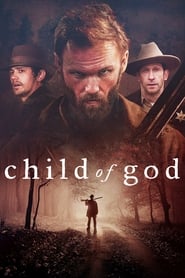"Not worth your time" is an overused expression for discussing movies casually between friends, and is commonly employed as a shorthand that the film is artistically weak. Yet this seems to be the perfect expression for Child of God, specifically in that whilst it's clearly not a good movie to start with, but, perhaps more importantly, it is not a good movie in an interesting enough way to justify its pacing and runtime. Anyway, given the revelations about Franco that have surfaced in the past few years, I feel no need to give this rather artless film the benefit of the doubt. But upon the film's release almost a decade ago, the critics were already pretty scathing. R. Kurt Osenlund (Slant) shrewdly observed that the worst scene in the movie was actually the only one added to the original novel:
It crops up about halfway through the moral and primal degradation of lead character Lester Ballard […] and it features Lester opening fire on the life-sized stuffed animals he won at a local carnival—his only friends in the world. Tellingly, the scene also includes the film’s most glaringly excessive and meaninglessly emphasized shot [and] the way in which Franco presents this moment—as a vital image worth hammering home instead of a fleeting detail for a subtle boost of characterization—speaks to an off-putting aura that looms over the film at large, and implies that its maker is one of arbitrary, sophomoric, and, at last, indulgent proclivities.
Kurt concludes:
The film unfolds in three distinct acts, just like McCarthy’s book, but Franco insists, like a junior Lars von Trier, on announcing those acts with title cards, and he furthermore cuts to black with much greater frequency than Lester beds dead women. However reflective of McCarthy’s choppy prose, the breaks are less effective than they are distancing, and they don’t come off like lyrical stylistic choices so much as amateurish transitional shortcomings. […] What lingers is the sense that the ever-busy Franco is ultimately a faux provocateur, who’s admirably attracted to both underworld fare and challenging work from the likes of McCarthy and Faulkner, but doesn’t have the chops—or, quite possibly, the time—to genuinely articulate it.
Musing on the obviously strong (but almost incomprehensive) performance by Scott Haze, Oliver Lyttelton wrote a little more sympathetically in his review for IndieWire that:
Flaws with the filmmaking could perhaps have been forgiven for a tour-de-force central turn, but there’s little to learn about the character once the first couple of reels are through.
Indeed, the quality of Haze' diction is a common theme throughout the reviews. Here is Ignatiy Vishnevetsky in AV Club:
[Franco] seems to conflate authenticity with unintelligibility, though one can never be sure whether the other characters’ ability to understand Ballard’s Pootie-Tang-esque speech is an intentional or unintentional running gag. […] Frankly, there are much worse ways for a Hollywood star to spend his millions than making half-assed tributes to his favorite novelists, poets, and filmmakers; one just wishes the results weren’t so slapdash.
Speaking more broadly, David Edelstein (Vulture) has a few thoughts on Franco's broader oeuvre:
I’m beginning to get the drift of Franco, the renaissance hipster whom some critics have branded a “dilettante.” I’m not sure he’s that. What he’s averse to is showing effort.
And I'll leave the final question for Xan Brooks review in The Guardian:
Could it be that Franco has now become a victim of his own gadfly nature, his pesky reputation as a jack of all trades? He has now reached the point where everything he does, every move that he makes, risks being viewed as a gesture or a silly little game

